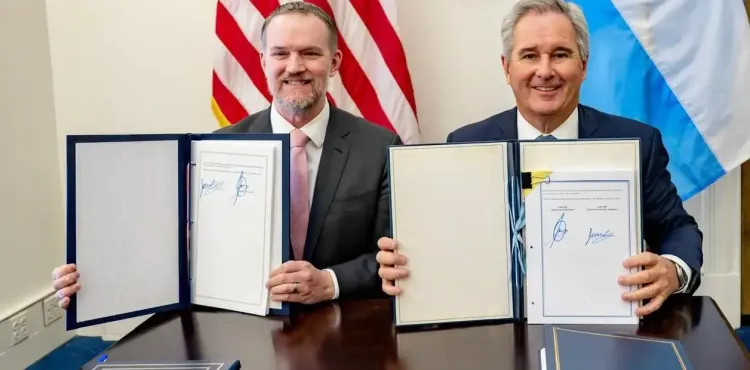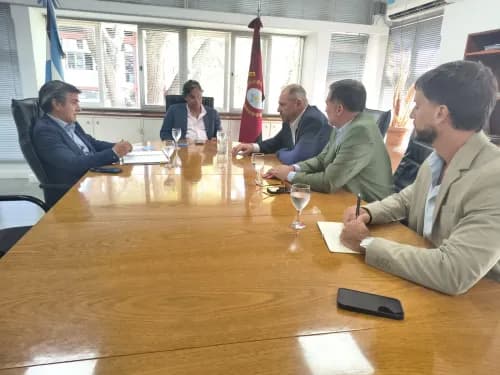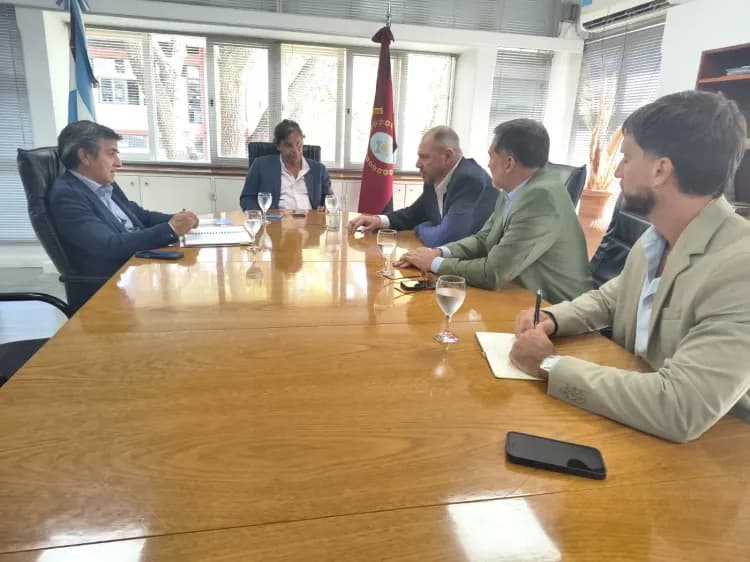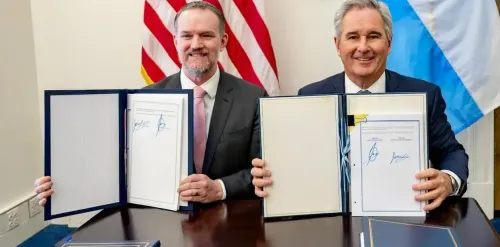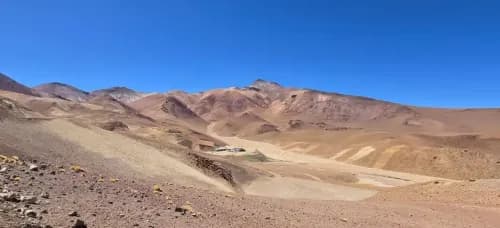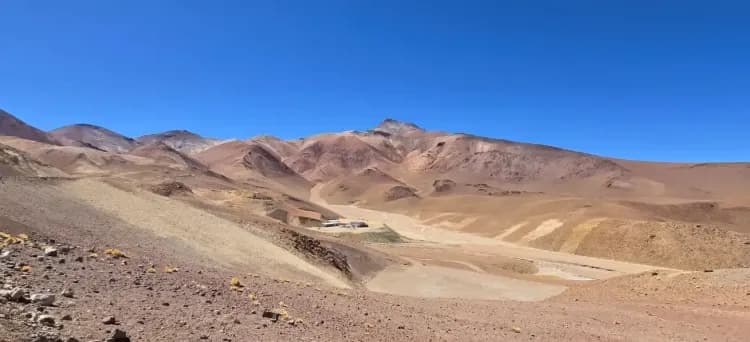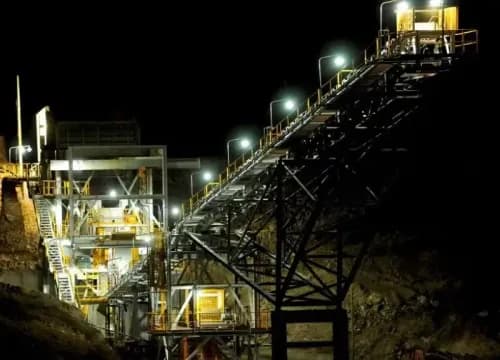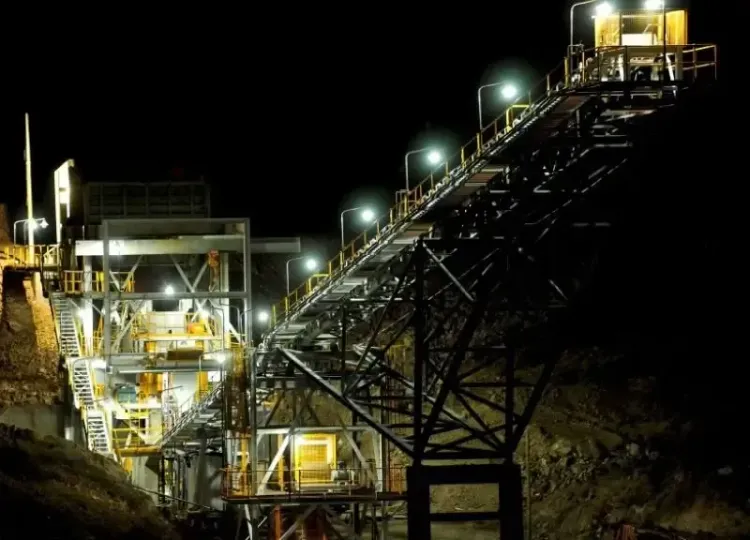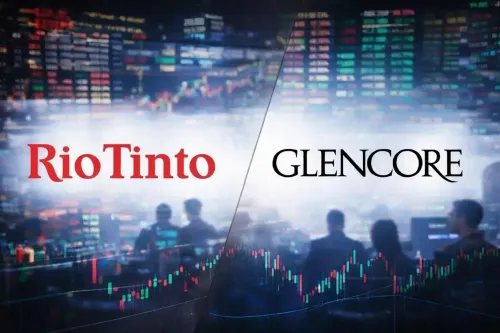Lithium Americas Corp. provided results of a 40,000 tonnes per annum (“tpa”) definitive feasibility study (“40,000 tpa DFS» or “DFS”) on the Caucharí-Olaroz lithium project currently under construction in Jujuy Province. Caucharí-Olaroz is 100% owned by Minera Exar S.A., a 50/50 joint venture between Lithium Americas and Ganfeng Lithium Co., Ltd. Lithium Americas and Ganfeng Lithium have authorized Minera Exar to proceed with the plan to produce 40,000 tpa of battery-quality lithium carbonate (“Li2CO3”) as outlined in the DFS.
Highlights:
- 40,000 tpa of Li2CO3 production for 40 years. Updated Mineral Reserve supports annual production in excess of 40,000 tpa of battery-quality Li2CO3 for 40 years.
- Construction capital cost of US$565 million. Construction capital costs include a contingency, over US$200 million in capital already committed in contracts and purchase orders of which US$105 million in capital spent as of June 30, 2019.
- Operating costs of US$3,576/t for battery-quality lithium carbonate. Operating costs reflect process optimizations designed to consistently achieve more stringent purity specifications currently required by battery material customers.
- Fully-funded to production. Lithium Americas 50% share of Minera Exar is expected be fully-funded with US$221 million available under the Company’s credit and loan facilities and net proceeds from the US$160 million Project investment by Ganfeng Lithium.
- First production targeted by early 2021. Construction on the 40,000 tpa Project is underway and expected to be completed by the end of 2020 with first production expected in early 2021.
The results of the DFS are provided in Table 1 on a 100% equity project basis:
Table 1: Caucharí-Olaroz 40,000 TPA DFS Results
| 40,000 TPA DFS | |
| Lithium carbonate average long-term price | US$12,000/t Li2CO3 |
| Production capacity | 40,000 tpa Li2CO3 |
| Project life | 40 years |
| Construction capital costs(2) | US$565 million |
| Operating costs | US$3,576/t Li2CO3 |
| Average EBITDA | US$307 million |
| After-tax NPV10% | US$1,330 million |
«With construction underway and funding in place, the results of the 40,000 tpa DFS further supports Caucharí-Olaroz as a scalable, high-purity source of lithium carbonate for battery material customers,” commented Jon Evans, President and CEO of Lithium Americas. “We are thankful for the hard work from the team at Minera Exar, the support from the government of Jujuy, and our 50/50 joint venture partner, Ganfeng Lithium, for their financial and technical contributions towards optimizing the process design and securing key equipment for the lithium carbonate plant.”
«Minera Exar is committed to building Caucharí-Olaroz to be one of the most environmentally responsible lithium projects globally,” commented Gabriel Rubacha, CEO of Minera Exar. “The 40,000 tpa DFS represents the first of future potential long-term investments in Caucharí-Olaroz for the benefit of the local communities, employees and Jujuy Province.”
Project Details
Caucharí-Olaroz is located in Jujuy Province in North West Argentina. The Project is situated in the Salar de Olaroz and Salar de Caucharí, adjacent to Orocobre Ltd.’s Olaroz facility, which has been in production since 2015. The Project is well serviced by nearby infrastructure including major paved highways which connect to the port of Antofagasta in Chile, a high-voltage transmission line, an adjacent 300MW solar project and a gas pipeline.
In 2012, Minera Exar granted a conditional right to Jujuy Energia y Mineria Sociedad del Estado (“JEMSE”), a mining and energy investment company owned by the government of Jujuy Province, to acquire an 8.5% equity interest in Minera Exar and provide management services as required to develop the Project.
The 40,000 tpa DFS includes a conventional, commercially-proven brine processing technology optimized from the salar in partnership with Ganfeng Lithium to produce battery-quality Li2CO3 that can be used to meet the specifications of battery material producers in manufacturing cathode and electrolyte for lithium-ion batteries. The DFS follows the 2017 feasibility study on a 25,000 tpa Li2CO3 project (“25,000 tpa DFS”).
Minera Exar has more than 250 employees and approximately 500 contractors at the Project. Construction is scheduled to be completed by the end of 2020.
Construction of the evaporation ponds commenced in Q1 2018 and is approximately 60% completed. Brine from production wells started filling ponds in Q4 2018. The liming purification process at the ponds is expected to commence in Q2 2020.
A significant amount of long-lead time equipment purchases and construction contracts have been awarded. Contractors for the production wells, ponds and liners, civil works (roads and well platforms), permanent camp, concrete works and structural steel (buildings) are engaged at the Project site. Equipment components for the lithium carbonate plant are expected to begin arriving to the site later this year.
Permitting
An update to the “Environmental Impacts Report for Exploitation” for Caucharí-Olaroz was approved by Jujuy Province in 2017 providing all necessary permits to support the 25,000 tpa DFS. In accordance with the provincial requirements, an update was submitted in August 2019 and is currently being evaluated by the Jujuy Province to expand the initial production capacity to 40,000 tpa of Li2CO3. This update includes supplementary environmental studies and information collected during the previous two years as well as changes to the Project description to reflect the current development plan and increased production capacity.
Brine Process
The process presented in the 40,000 tpa DFS follows industry standards: pumping brine from the salar, concentrating the brine through evaporation ponds, and bringing the brine concentrate through an extractive hydrometallurgical and purification process to produce battery-quality Li2CO3. The updated process has been refined and optimized using the results of lab and pilot scale testing by Minera Exar, Ganfeng Lithium and equipment suppliers with experience in manufacturing the industrial equipment that Ganfeng Lithium uses for the production of high-purity products.
An average evaporation rate of 6.05 mm per day (2,157 mm per year) was used as criterion to design the pond system. The rate corresponds to measured evaporation rates observed at the site where the ponds are located. At the demonstrated evaporation rate, the total evaporation area required to produce 40,000 tpa of Li2CO3 is 1,200 ha (12 km2) and includes allowances for salt harvesting and maintenance work. The ponds are designed with multi-layer liners consisting of a polymer-based material and engineered granular bedding. The evaporation ponds have been designed with a flat bottom for efficient harvesting and a shallow brine depth to improve evaporation and with the aim to allow for efficient salt harvesting using commercially proven equipment employed in Chilean operations.
The Li2CO3 recovery process from brine has been designed to achieve customer quality requirements. This system is robust and has been engineered to produce a consistent quality product regardless of seasonal changes in brine composition in the ponds.
The process removes key impurities from the concentrated brine in the ponds before producing high-purity Li2CO3 in the plant. The process uses a combination of industry standard processes that have been adjusted for the specific chemistry of the brine in the salar. These steps extract contaminants in a low-impact, cost-effective order while recovering fresh water from the brine for use in the process. The Li2CO3 precipitation is controlled carefully to form a high-purity crystal of Li2CO3 that can then be washed, dried and micronized to meet the required particle sizes from the energy storage space.
The process has been engineered to minimize the use of energy and fresh water. All brine and water used is recycled multiple times and is cleaned throughout the process. Energy is recovered internally between multiple process streams and utilities ensuring efficient and optimized consumption. This is expected to result in environmentally responsible production of high-purity lithium chemicals.



